7 Essential Lessons we Learned from the Incomparable Kidd Kraddick
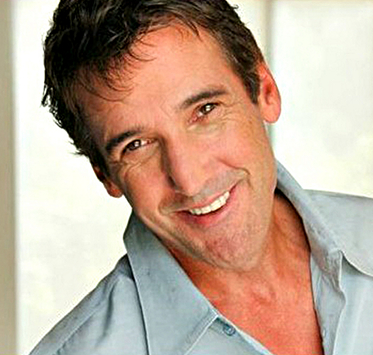
|
Kidd Kraddick, 1959 – 2013 |
You’ve probably never heard of Kidd Kraddick. But he was one of a small handful of the world’s all-time great radio broadcasters – and there’s a lot you can learn from him. In part 1 here, we remembered what a genuinely great and generous man he was. Here we list some of the many ways he influenced us and many others, and how Kidd Kraddick had such a strong influence on so many stations and shows in Australia and around the world.
Our thoughts go out to his family, friends, colleagues, and the millions of people who listened to his show.
Kidd Kraddick passed away unexpectedly on July 27th. In part 1 here we remembered his dedicated work for charity, his career, and his incredible show. Here, we outline some of the lessons we learned from him.
Kidd Kraddick in the Morning was one of the most listened-to radio shows across America – and one of the most influential radio shows of all time. You may not have heard of him, but you’re very likely to have felt his influence indirectly.
What follows are not Kidd’s words – they’re ours. But it is a list of some of the many ways he influenced us – whether directly when Scott met with him and he generously shared his wisdom, or indirectly through diligently studying his show (not just as Program Directors but as genuine fans). And it’s a list of just some of the ways Kidd Kraddick had such a strong influence on so many stations and shows in Australia and around the world.
1) Walk in your Audience’s Shoes
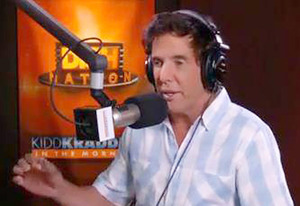 Scott: “More so than any other radio personality/presenter I've ever met, Kidd Kraddick really knew his audience. And in listening to the way he talked about his show, it was evident that he knew the audience intimately because he’d walked in their shoes, and because of that he was also part of his own audience”
Scott: “More so than any other radio personality/presenter I've ever met, Kidd Kraddick really knew his audience. And in listening to the way he talked about his show, it was evident that he knew the audience intimately because he’d walked in their shoes, and because of that he was also part of his own audience”
It’s important to walk in your audience’s shoes. Not just ‘Know Your Audience’ (by research stats and focus groups – useful as they may be) – but to really know what it’s like to be in the head of the person who is listening. Kidd spent quite some time unemployed, listening to the radio like a listener. You don’t have to go so far as to be unemployed – but it will pay off big time to spend time doing just what the person who is listening is doing, at the same time and in the same environment that they are in while they’re listening.
It’s the difference between the theory of ‘our ideal listener is a 32 year old female who lives in X suburb and does Y job, etc’ – and actually having a tangible understanding and a strong emotional memory of what it’s like to be rushing from the bedroom to the kitchen to the bathroom while trying to get the kids ready, working out what to wear, half listening, half not, getting in the car, getting stuck in traffic while you’re running late and the frustration of it, the feeling the show gives you while you’re listening and all this is going on, the bits you mentally tune in to, and the bits where it loses your attention. These insights transcend ‘our ideal listener is a (Insert: gender / age / suburb / socio-economic class’.
If the idea of ‘people are busy getting ready to face the day while they’re listening’ is a vague, theoretical concept, then we can’t really be in touch with how people are feeling, thinking, and what they are doing while you’re on-air.
This point alone can make a huge difference to how you approach your show.
2) Be Inclusive
Being ‘broad appeal’ doesn’t mean being unfocused, and trying to become ‘all things to all people’. It means making sure what you’re doing is inclusive, so that not only your hard-core fans can join in, but anyone who could potentially become a fan can join in (even if they’re not in the core target demo). Kidd Kraddick was a master of making any person listening – even if they were listening for the very first time – feel like they knew what was going on, and were welcome to join in the fun – ‘welcome to the club’. It’s an important part of being a truly great host. Brad touches on the importance of this for radio shows in more detail here.
 3) Find your unique, authentic voice
3) Find your unique, authentic voice
Craig Bruce (right) put it at the top of his list of ’25 things he’s learned in 25 years’, and we agree.
‘All announcers sound the same. The most important thing you can do is find your unique, authentic voice’. Kidd’s incredible career is testament to how important this is – particularly his unemployed period in the wilderness before coming back with a refreshed approach.
If you don’t know how to go about finding your unique, authentic voice, one place to start might be point 1, ‘Take a Walk in your Audience’s Shoes’. This can be challenging. The question goes beyond ‘what is the listener feeling and thinking and doing (while they are listening)’ – to ‘what am I feeling and thinking and doing (while I’m in their shoes)?’ How does that experience affect your perspective on what you mentally tune into, or what loses your attention? How does that affect what you choose to talk about, or how you talk about it? Whether you do standalone ‘bits’ or whether you develop strong story arcs – or even if you, as Kidd did, sometimes take an even more expansive and character-driven approach to your show?
Which leads to …
4) The show must have genuine, human ‘characters’ – not merely ‘personalities’
Brad has written about this in detail in ‘Great Talent Matters’.
‘Great talent offer something different and unique. They stand out and are memorable. They are relatable, authentic and importantly true to themselves. They tend to have character as opposed to personality.’
People with great personalities are everywhere. Genuine, human ‘characters’ are much more elusive to find, to nurture, to develop. Listeners can tell the difference!
Which leads to …
5) ‘Stoke the fire’ / be the ‘ringmaster’
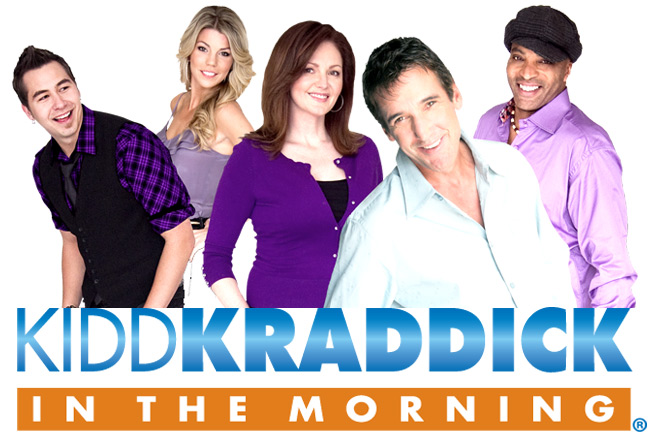 When Kidd Kraddick was telling Scott about the people on his show, he talked about them as ‘characters’ – not made up characters like in a sitcom, but genuine, human characters, with passions and hang-ups and foibles, and strong points-of-view (e.g., at the time he described one character on his show as having a very strongly feminist viewpoint on some issues, and another as having a ‘militantly’ passionate anti-racist viewpoint – and those examples are just one dimension of each of those two characters. Clearly they each had many more dimensions). And Kidd saw part of his role as balancing it all out, ‘stoking the fire’ while keeping it all true to being a fun morning show – albeit one with depth and dimensions.
When Kidd Kraddick was telling Scott about the people on his show, he talked about them as ‘characters’ – not made up characters like in a sitcom, but genuine, human characters, with passions and hang-ups and foibles, and strong points-of-view (e.g., at the time he described one character on his show as having a very strongly feminist viewpoint on some issues, and another as having a ‘militantly’ passionate anti-racist viewpoint – and those examples are just one dimension of each of those two characters. Clearly they each had many more dimensions). And Kidd saw part of his role as balancing it all out, ‘stoking the fire’ while keeping it all true to being a fun morning show – albeit one with depth and dimensions.
He described himself as being like a ‘ringmaster’, or conductor. Someone on the show has to be in tune with how the person listening is hearing it. It helps if that person is generous with air-time so that they can be an effective ‘ringmaster’ – as Kidd was. Kidd said part of his role was to ‘push the buttons’ when the show was lagging and needed firing up, and to pull it back a little when it went over the edge.
6) Momentum and Energy
One of the striking things about Kidd’s show was its high-energy – without being irritating and ‘in-your-face’. The show didn’t ‘shout at’ the person listening, as many American (and some Australian and British) shows do – yet moved along with great pace, excitement and a strong sense of unpredictability.
Often it sounded like the on-air team didn’t know what was going to happen next – and in some of the situations they created, how could they? Many shows, when they get themselves into situations where no-one is quite sure where it’s heading, stall – and it suddenly falls flat. With Kidd Kraddick at the helm the team managed to avoid this much more often than not, and it created an in-built forward-momentum: the person listening couldn’t switch off in case they missed what was going to happen next. All without just relying on ‘coming up next …’.
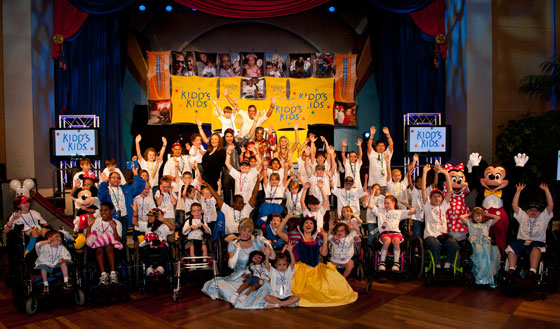 Kidd's Kids |
7) Use your position for good
Kidd knew that fame and influence is elusive. He’s been credited with the observation that you can be a celebrity in your market (think of someone like the antithesis of Kidd Kraddick, such as Anchorman’s Ron Burgundy: ‘I’m kind of a big deal’), yet go visit another city and you can’t get so much as a free movie ticket. Fame and celebrity, to whatever degree you might have it in the city or town where you work, isn’t a currency you cash in across borders. Ewan McGregor tells a funny story about being in Africa and not being recognised – even when he stood next to a life-size cardboard cut-out of himself as Obi-Wan Kenobe.
Fame and celebrity, to whatever degree you have it (and it’s all relative), is elusive, short-lived, and most importantly: it’s not really about you. It’s about the people who make you famous in the city or town you work in – the people who listen to the show you do. It’s really all about them.
We don’t know whether Kidd Kraddick ever heard the saying “It’s nice to be important, but it’s more important to be nice” – yet his life and career certainly seem to reflect its sentiment. So, if you haven’t already done so, it’s worth taking a leaf out of Kidd Kraddick’s book and giving back to the community that gives you so much. Use what they’ve given you (your position and influence) for good, and to create a real and valuable difference to other people’s lives. One day the fame and celebrity – to whatever degree you have it – will be gone, and it will be important to you to have made a lasting difference. Just as Kidd did.
Thank you, Kidd Kraddick. You were a wonderful, warm, and generous man – unique, genuine, and one of the great people in the history of radio.
Our thoughts go out to Kidd Kraddick’s family, friends, and colleagues. And to his listeners, who lost a good friend.
 |
Scott Muller is Director of MBOS Consulting Group, and media management and elite talent consulting firm. Click here to contact him.. | |
|
|
||
|
|
  |
Brad March is a former CEO of the Austereo Network and is Managing Director of Marchmedia. |
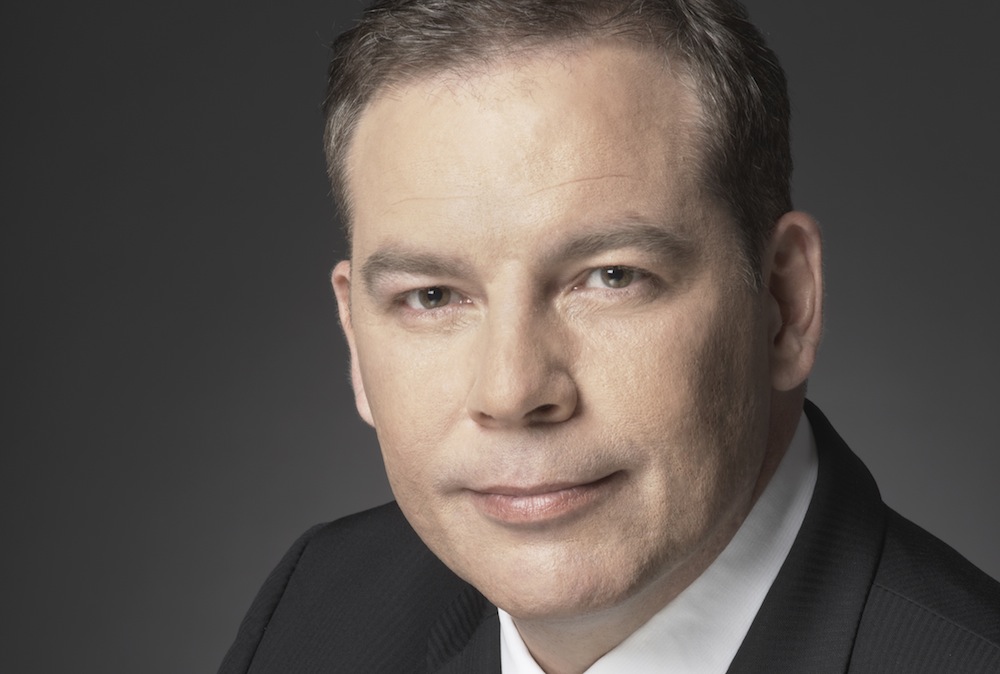
%2072px.jpg)



